Early Mandibular Distraction Osteogenesis
advertisement
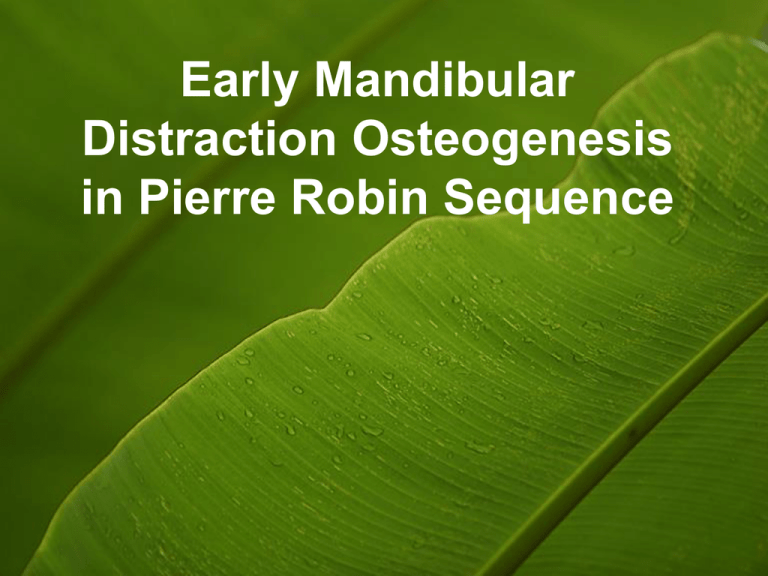
Early Mandibular Distraction Osteogenesis in Pierre Robin Sequence Pierre Robin Sequence • • • • Pierre Robin case report 1926 one in 9000 births micrognathi, glossoptosis, cleft palate. Theories: – fetal head positioning, frequently associated with oligohydramnios. – a delay in neurological maturation – rhombencephalic dysneurulation • rare familial cases reported - localized intrinsic failure of mandibular growth may be a factor in some cases. • Catchup mandibular growth in most, but mandibular dimensions will remain below agematched norms. Early Considerations • varying degrees of airway obstruction and feeding difficulties. • mechanism - falling back of the tongue into the oral pharynx. • Immediate supportive measures required in over 70 percent of affected infants. • Caouette-Laberge ( 1994) clinical classification of respiratory symptoms: – group I, adequate respiration in prone position and bottle feeding; – group II, adequate respiration in prone position but feeding difficulties requiring NGT; – group III, children with respiratory distress requiring respiratory support and NGT. Early Management • Supportive measures • Lying prone • Tongue-lip adhesion – Kirschner (2003) - >40% Group III infants required tracheostomy after tongue-lip adhesion – Denny (2004) - additional 1.9 secondary procedures • Nasopharyngeal airway • Tracheostomy (12-42%) • K wire fixation, genioglossus stripping Problems with tracheostomy • Increased morbidity – Donnelly, Int J Pediatr Otorhinolaryngol. 1996 • n=29; 41% complication rate (<1yo- 64%) • 25 months average decannulation – Midwinter, J Laryngol Otol. 2002 • n-=143; 46% complication rate • 25 months mean decannulation • Mortality 2.7% – Carr, Laryngoscope. 2001 • N=142; 43% serious complications • Mortality 0.7% Problems with tracheostomy • Poorer Speech Outcomes – Jiang, Int J Pediatr Otorhinolaryngol. 2003 • Affects speech and language development in those with and without neurological disorders. • Risk factors: age at tracheostomy, and duration. • Better outcome with early decannulation – Simon, Int J Pediatr Otorhinolaryngol. 1983 • All children decannulated during the linguistic stage exhibited specific spoken language delays • phonological impairment proportional to duration Problems with tracheostomy • Prolonged – Tomaski, Laryngoscope 1995 • Average 3 years decannulation in PRS • Carer Impact • Financial Burden • Developmental Problems – Singer, Dev Med Child Neurol. 1989 • • • • n=130 Slower growth rate Higher risk of behavioural problems Most will require special educational intervention Mandibular Distraction: Background • External traction with halo (Callister 1937) Mandibular Distraction: Background • External traction with pulley/ weight (Longmire, Sandford 1940) Mandibular Distraction: Background • Mandibular DOG – McCarthy 1992, Molina/Ortiz-Monasterio 1995 • Use in children with airways obstruction – Moore, David 1994 – Cohen 1999 • Use in Pierre Robin – Denny 2001,2002 – Monasterio 2002 – Burstein 2005 (internal resorbable device) Mandibular Distraction: Background • External distractor (Denny 2002) – linear Howmedica distraction device Mandibular Distraction: Background Mandibular Distraction: Background Mandibular Distraction: Background • Internal resorbable device Early Distraction: Controversies • Conservative management alone – 20-40% will not respond to positioning or glossopexy • Rapid distraction – 2mm/day vs 1mm/day – In goats – demyelination noted at 2mm/day (Hu, J Oral Maxillo Surg 2001) • Effect on dentition – Screw holes – Infraalveolar nerve • Effect on subsequent mandibular growth • Facial scarring Indications for early distraction in Pierre Robin • Failure of conservative measures to improve respiration and feeding • Documented tongue base obstruction • Center with expertise In distraction
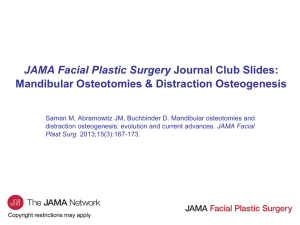
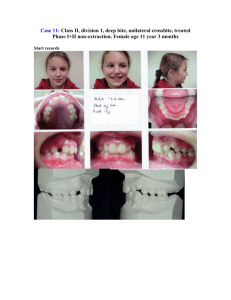
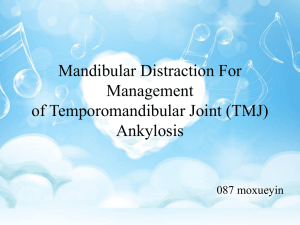
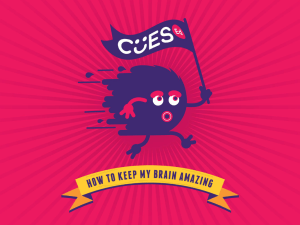
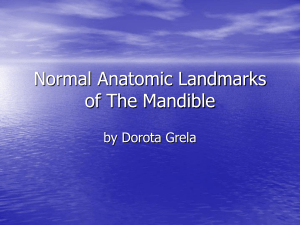
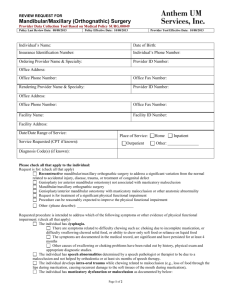
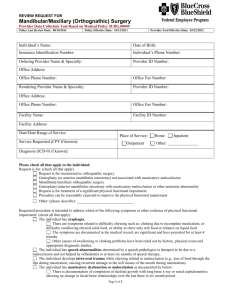

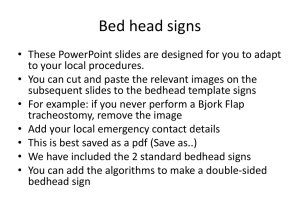
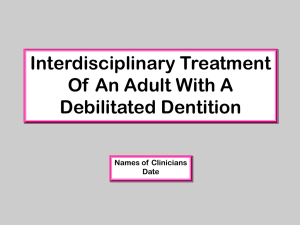
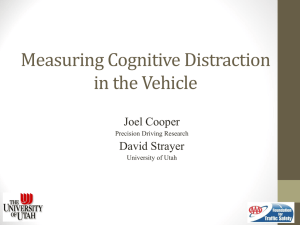
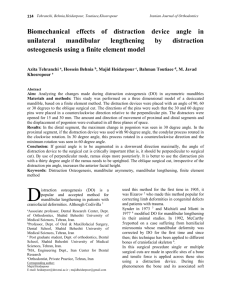
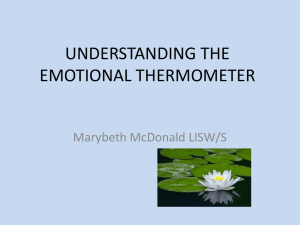
![paper_ed16_24[^]](http://s3.studylib.net/store/data/005821098_2-90f9cc92c880c39c118104ccc3093869-300x300.png)